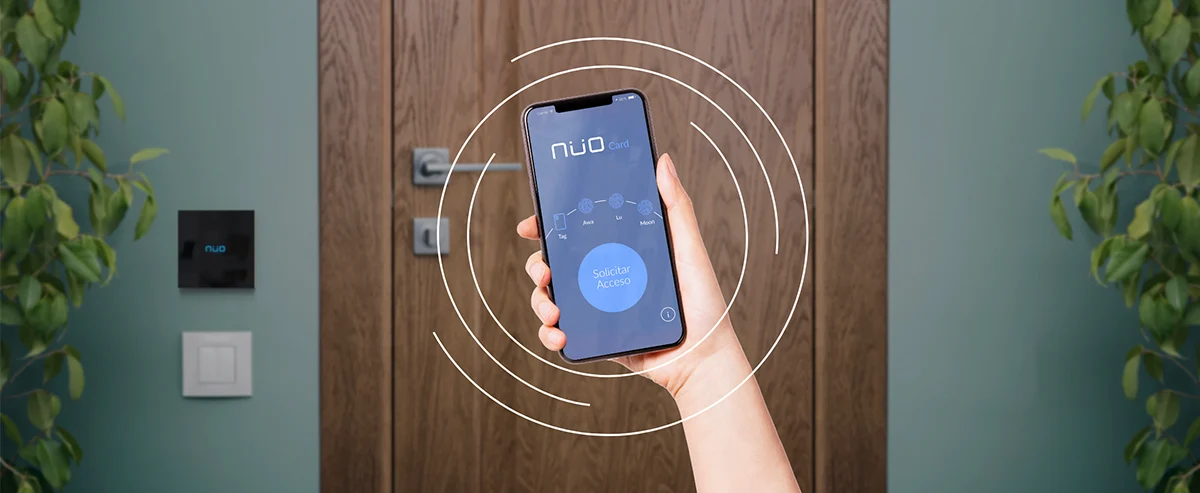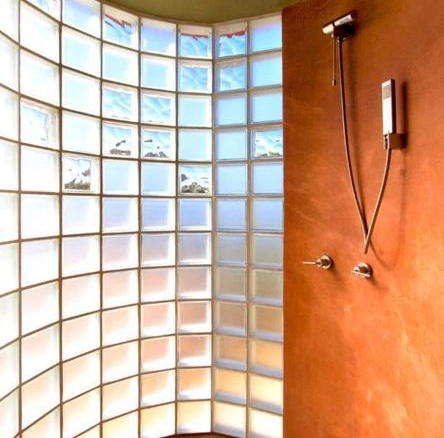People rely on smartphones for almost everything – why not also handle property access from your smartphone? Traditional keys, key cards, and fobs are quickly becoming outdated and being replaced by the more efficient method, mobile access control. This type of access control impacts real estate by allowing residents, tenants, and employees to unlock doors and enter buildings using their smartphones.
From streamlining security to enhancing tenant satisfaction, smartphone-based access control is quickly becoming a must-have for property managers and building owners. Let’s take a closer look at what mobile access control is and how it’s making real estate smarter and more valuable.
What is mobile access control?
Mobile access control allows users to enter buildings or secure areas by simply using their smartphones. Through Bluetooth, Wi-Fi, or NFC (Near Field Communication), the mobile device communicates with the building’s access control system, granting entry without the need for physical keys, fobs, or cards.
Instead of issuing keycards or replacing lost keys, property managers issue virtual keys via a smartphone app. Tenants then download the app, access their credentials, and use their phone to unlock doors or gates. This simple yet effective system is making real estate management smoother, more efficient, and more secure.
5 ways mobile access control improves real estate
1. Easier security management
With mobile access control, property managers can easily manage access remotely via an online dashboard. You can grant, modify, or revoke access at any time from anywhere, eliminating the need to replace tenants’ physical keys or meeting people at the door. This is a game-changer for managing large buildings or properties with multiple access points.
Not only does mobile access improve efficiency, but it also tightens security. Since smartphones require authentication (like PINs, passwords, or biometric scans), mobile apps offer an extra layer of protection. Credentials from lost or stolen smartphones can be remotely deactivated, while access logs show date- and time-stamped records of who is entering, giving property managers a clear view of traffic patterns and potential security risks.
2. Enhanced tenant and resident satisfaction
Mobile access control isn’t just about making things easier for property managers—it’s about making life easier for tenants and residents too. No more fumbling for keys or waiting for property managers to deliver or collect keycards. With a smartphone, tenants can access their homes, common areas, and amenities with ease.
What’s more, smartphone-based access control is convenient, future-forward, and perfectly aligned with the modern lifestyle. In competitive real estate markets, offering mobile access control can set your property apart, making it more attractive to potential renters and ensuring greater tenant retention.
Mobile credentials also work for temporary access. Residents can easily share virtual keys with guests, delivery drivers, or service personnel for limited-time access. This flexibility adds convenience and security for residents while making property management smoother.
3. Increased property value and appeal
Smart building technology is in high demand, and properties that incorporate advanced tech solutions, like mobile access control, are more appealing to both buyers and renters. Whether you’re managing a commercial office building or a residential complex, the ability to offer state-of-the-art security and convenience makes your property stand out.
In commercial real estate, businesses are looking for smart, scalable solutions that can adapt to their needs. As such, mobile access control is flexible, allowing businesses to adjust access levels for different departments, visitors, and contractors without needing to install new hardware. For investors, a property that incorporates mobile access control represents a forward-thinking, future-proof investment.
4. Lower costs and greater efficiency
Traditional key cards, fobs, and locks come with ongoing costs for maintenance and replacement, but mobile access control significantly cuts down on these expenses. Since most people have their smartphones on hand, there’s no need to worry about constantly replacing lost or damaged cards. Everything is managed digitally, reducing the workload for property managers.
Moreover, integrating mobile access into other building systems, like security cameras, visitor management, and HVAC controls, creates a more efficient environment that improves overall building operations.
5. Improved emergency response
Lastly, mobile access control can also be a critical tool in emergencies. In the event of a fire, security breach, or natural disaster, property managers can remotely lock down or open doors to allow first responders easy access. So, this capability can make all the difference in managing building safety during unexpected events.
Conclusion
Mobile access control is more than just a trend; it’s a significant shift in how real estate properties are managed and secured. Overall, smartphone-based access control systems make life easier for property managers, improve tenant satisfaction, and boost the appeal and value of buildings. As the demand for smart, connected buildings continues to rise, investing in mobile access control is one of the smartest choices you can make.




